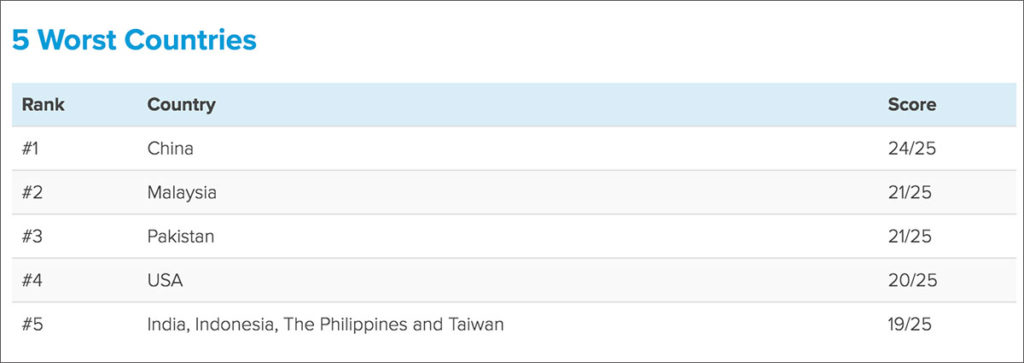Report on utilisation of Biometric Data by Britain based tech firm 06/12/2019 – Posted in: Daily News – Tags: Adhaar
Utilisation of Biometric Data
For: Preliminary & Mains
Topics covered:
- Key highlights from the report on use of Biometrics Data
News Flash
In a report released by a Britain-based tech firm Comparitech has revealed that India is the fifth-worst country after China, Malaysia, Pakistan and the US in terms of extensive and invasive use of biometric data.
The firm analysed 50 countries on five different aspects such as visas and biometric voting systems to “offer a fair country-by-country comparison” of biometric usage.
Each country has been scored out of 25, with high scores indicating extensive and invasive use of biometrics and/or surveillance and a low score demonstrating better restrictions and regulations regarding biometric use and surveillance.

Utilisation of Biometric Data
Key Highlights
- India ranked in the list of worst countries for biometric data collection because it does not permit law enforcement to get access to the national biometric database known as Aadhaar.
- India scored 19, while China scored 24 out of 25.
- Ireland, Portugal, Cyprus, the UK and Romania emerged as the five best countries in terms of collection, storage and use of biometric data.
Countries in the European Union scored better overall than non-EU countries due to General Data Protection Regulation (GDPR) regulations protecting the use of biometrics at the workplace to some extent.
India may have performed even worse
- India’s national biometric database, Aadhaar, is the largest in the world.
- India may have performed even worse in the area of biometric data privacy if investigating agencies and the police had access to the Aadhaar database.
General Data Protection Regulation (GDPR)
GDPR is a regulation in EU law on data protection and privacy for all individual citizens of the European Union (EU) and the European Economic Area (EEA). It also addresses the transfer of personal data outside the EU and EEA areas.
The GDPR aims primarily to give control to individuals over their personal data and to simplify the regulatory environment for international business by unifying the regulation within the EU.
Source: Business Standard
READ MORE DAILY NEWS
- Bharat Bond Exchange Traded Fund
- The Gujarat Control of Terrorism and Organised Crime (GCTOC) Act
- Coalbed Methane
- Supreme court on Electronic Evidences
- VoWi-Fi Technology
- The draft Registration of Press and Periodicals Bill, 2019
- Industrial Relations Code Bill, 2019
- Global Migration Report 2020
- Joint military exercise ‘SURYA KIRAN – XIV’
- Gandhipedia
You are on the Best Online IAS preparation platform. You are learning under experts.
We are present on Facebook- Diligent IAS, LinkedIn- Diligent IAS, YouTube- Diligent IAS, Instagram- Diligent IAS. Get in touch with us.

